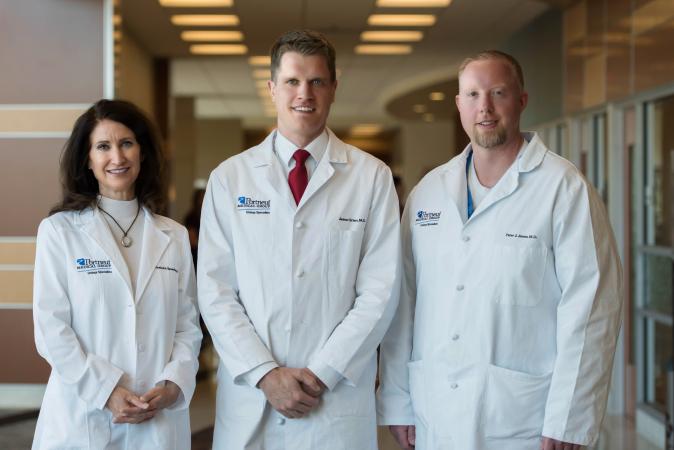
As Men’s Health Month concludes, Portneuf Medical Group Urologist, Peter Jones, MD, shares some thoughts on the urological side of men’s health and the importance of early detection. There is a great need to increase awareness of signs and symptoms so that men can recognize when something is not normal. Starting those conversations is incredibly important.
“Men are notoriously bad at being advocates for their own health,” said Dr. Jones. “They will have symptoms for months or even years before they finally see a physician.”
One of the best ways to start a conversation is by talking to patients about prostate screenings. Symptoms of prostate cancer typically do not show up until the later stages, which is why early screening is extremely important. The Prostate-Specific Antigen (PSA) test is a non-invasive screening for prostate cancer.
“Prostate cancer is very common, but is also treatable if caught early,” said Dr. Jones. “Good outcomes and survival are definitely linked to early detection and in the past few years, where people have stopped screening regularly, we have seen a 75% increase in men showing up with prostate cancer in much later stages. I encourage men to see their primary care providers or their urologist and establish a PSA baseline. That way they can follow up regularly and catch the cancer early if their PSA comes back higher than normal. The sooner we find it, the sooner we can treat it and the better the outcome will be.”
While prostate cancer is commonly asymptomatic until later stages, testicular cancer can be detected through self-exams.
“Testicular cancer is tricky because the most common age of occurrence is ages 15-25,” said Dr. Jones. “It is primarily a disease found in younger men, so I advocate for primary care providers and pediatricians to show their male patients, who are entering puberty, how to perform monthly self-exams. Typically we do not see patients unless they already have testicular cancer, so it is left up to pediatricians or primary care providers to encourage self-exams.”
As a urologist, Dr. Jones treats a variety of issues, but most commonly, he treats kidney stones.
Statistically, kidney stones are more common in men than women, but unfortunately, the number of cases in women is increasing. To reduce your risk of kidney stones, Dr. Jones recommend the following four lifestyle habits:
- Stay hydrated (drink a lot of water)
- Eat the recommended amount of calcium
- Limit your salt intake
- Increase the citrate amount in your diet
“If you are plagued by chronic kidney stones, we can perform a metabolic evaluation to see why certain people are making kidney stones and then address those reasons on an individual bases,” said Dr. Jones.
Along with the recommended lifestyle habits listed above, Dr. Jones also encourages all his patients to live an active lifestyle and eat a healthy diet.
“I tell my patients, ‘If it is good for your heart, it is good for your prostate.’ Heart-healthy diets that are high in fruits and vegetables are great and eating animal protein in moderation can reduce your risk of several cancers including prostate cancer. I also recommend regular activity. We’ve got to stay active and keep moving,” said Dr. Jones.”
The team at Portneuf Urology Clinic - Peter Jones, MD; Jason Orien, MD and Liz Smedley, NP - provide a full range of urological care including management of stone disease, incontinence, urinary infections, prostatic enlargement, cancers of the genitourinary system, impotence and infertility.
“I have been really happy at Portneuf,” Dr. Jones said. “Jason Orien (MD), my partner in the practice, is fantastic and we work very closely together on larger cases; it is a great relationship and collaboration. I really enjoy practicing urology because it is the perfect mix of surgery and medicine. I see patients throughout their lives depending on their issues, but unlike general surgeons who operate on patients and do not see them again, I see my patients and really love establishing a long-term relationship with them.”
To schedule an appointment with either Peter Jones, MD or Jason Orien, MD, Portneuf Medical Group - Urology, please call 208-239-2770.